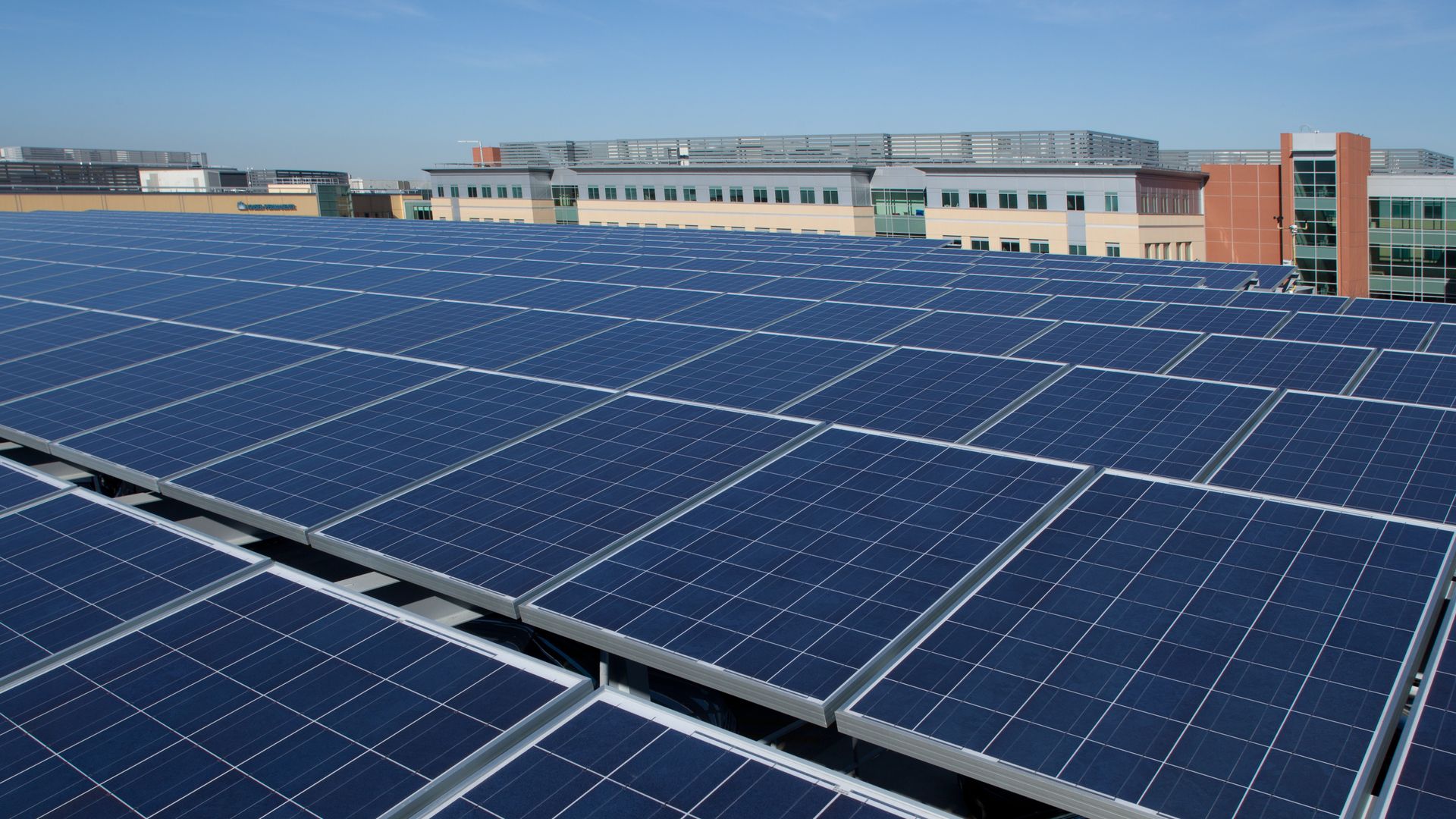Sep 10, 2018 - Energy & Climate
Kaiser Permanente to be carbon-neutral by 2020
Add Axios as your preferred source to
see more of our stories on Google.

Solar panels at a Kaiser Permanente hospital in California. Photo: Kaiser Permanente
Add Axios as your preferred source to
see more of our stories on Google.

Solar panels at a Kaiser Permanente hospital in California. Photo: Kaiser Permanente